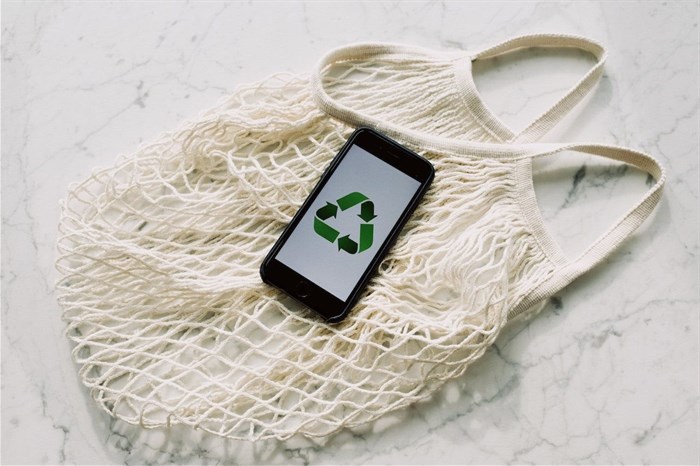Portable batteries, pesticides and lubricant oils now fall under the Extended Producer Responsibility Regulations, and have to comply with rules on transportation, storage and waste.

Image source: ready made from
PexelsOn 23 March 2023, three new Extender Producer Responsibility Schemes (EPR Schemes) were published, bringing three additional sectors under the regulation of the Extended Producer Responsibility Regulations, 2020 (EPR Regulations). These are:
- the portable battery sector;
- the pesticide sector; and
- the lubricant oil sector.
Portable batteries:
The EPR Scheme for the Portable Battery Sector applies to portable batteries, defined as batteries which are sealed, can be hand-carried without difficulty, and are neither automotive nor industrial batteries. This EPR Scheme applies to the following portable battery classes: alkaline/zinc carbon batteries; primary (single use) lithium batteries; nickel metal hydride batteries; silver oxide batteries; and zinc air/air depolarised batteries.
It also applies to the waste arising from the use of these portable battery classes. The prescribed EPR measures imposed on producers of these identified products include collection, transportation, and storage of these products in the post-consumer stage; recycling; and recovery. They also include targets for the first five years of implementation of the EPR Scheme.
Pesticides:
The EPR Scheme for the Pesticide Sector applies to pesticides, pesticide co-formulants, and related containers as identified products (each as defined) and the waste arising from their use.
The prescribed EPR measures imposed on producers of these identified products include collection, storage, and transportation of these products; recycling; and treatment. They also include targets for the first five years of implementation of the EPR Scheme.
Lubricants:
The EPR Scheme for the Lubricant Oil Sector applies to lubricant oil, defined as all virgin and re-defined mineral and synthetically based lubricants, with or without additives, used for lubrication within heat transfer, load transfer, insulation or any other application, which can be recovered after use. This EPR Scheme applies to lubricant oils distributed or intended for distribution in South Africa and the waste arising from their use.
Certain specified products are expressly excluded from the scope of this EPR Scheme (eg. vegetable oils, greases and waxes).
The prescribed EPR measures imposed on producers of these identified products include collection, transportation and storage of these products in the post-consumer stage; reuse; and recycling/recovery. They also include targets for the first five years of implementation of the EPR Scheme.
These new EPR Schemes are now in force.
Proposed amendments to the EPR Regulations
On 5 May 2023, the Minister of Forestry, Fisheries and the Environment published a notice of intention to amend the EPR Regulations and their associated sector notices. The proposed amendments seek to provide technical clarity on the EPR Regulations and the associated notices, while strengthening the ability of this legislation to hold producers liable for achieving published sector targets and curbing free riders.
The proposed amendments include:
Amendment to the definition of "producer", to clarify the current broad definition/scope of "brand owner". Introducing a "returnable packaging system" by producers regulated under the Packaging Sector Notice. A requirement to compensate registered waste pickers from November 2022, instead of by November 2022 (which is the current legal requirement). Deleting the requirements for Producer Responsibility Organisations (PRO's) to- conduct internal biannual financial audits and make these audit reports available to the department upon request;
- submit annual audit reports to the DFFE and upload them onto the SAWIC for public access; and
- collect, record, manage and submit data to the SAWIS from regulation 5A (Obligations of PRO) and moving them to revised regulation 8 (Monitoring, Reporting and Evaluation).
Deletion of the requirements for producers establishing and implementing their own EPR Schemes to- conduct internal biannual financial audits and make these audit reports available to the department upon request;
- make the internal biannual audit reports available to the external auditor;
- submit annual audit reports to the Department of Forestry, Fisheries and the Environment (DFFE) and upload them onto the SAWIC for public access; and
- collect, record, manage and submit data to the SAWIS from regulation 5B (Obligations of Producer) and moving them to revised regulation 8 (Monitoring, Reporting and Evaluation).
Extending the EPR fee concurrence period to 90 days (previously 60 days). Moving the annual deadline for submission of financial plans and budgets to 31 August (previously 30 November). Amending the monitoring, reporting and evaluation requirements. Deleting the option for PROs or producers to request earlier reviews of their EPR Schemes by the DFFE due to non-achievement or over-achievement of targets and permitting the DFFE to conduct compliance inspections on producers and PROs. Tightening up the offences and penalties provisions. Amending the compliance timeframe for the targets prescribed for the identified products and the resulting wastes in Annexure 1 to each of the Packaging, Lighting and Electrical & Electronic Equipment Sector Notices. Compliance has to be achieved five years from the date of the implementation of the EPR Regulations (previously five years from implementation of the EPR Scheme). The targets in the Electrical & Electronic Equipment Sector Notice will also be amended to align with percentages against a baseline. The targets in the Packaging Sector Notice will be amended to set uniform reuse targets for glass packaging. Revising the exemptions in the Electrical & Electronic Equipment Sector Notice to include lead acid batteries (previously, this was "portable batteries").These are proposed amendments. Public comments are due by 5 June 2023.




















